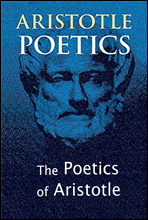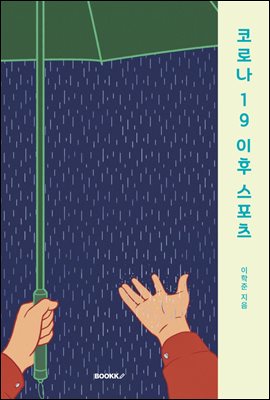
아리스토텔레스의 시학 (The Poetics of Aristotle) 영어로 읽는 명작 시리즈 480
- 저자<아리스토텔레스 (Aristotle)> 저
- 출판사유페이퍼
- 출판일2016-11-09
- 등록일2018-12-11
- SNS공유


- 파일포맷EPUB
- 파일크기1MB
- 공급사YES24
-
지원기기
PC
PHONE
TABLET
프로그램 수동설치
전자책 프로그램 수동설치 안내
아이폰, 아이패드, 안드로이드폰, 태블릿,
보유 1, 대출 0,
예약 0, 누적대출 0, 누적예약 0
책소개
Aristotle's Poetics (Greek: Περ? ποιητικ??, Latin: De Poetica c. 335 BCE[2]) is the earliest surviving work of dramatic theory and the first extant philosophical treatise to focus on literary theory. In it, Aristotle offers an account of what he calls "poetry" (a term which in Greek literally means "making" and in this context includes drama?comedy, tragedy, and the satyr play?as well as lyric poetry and epic poetry). They are similar in the fact that they are all imitations but different in the three ways that Aristotle describes: Differences in music rhythm, harmony, meter and melody. Difference of goodness in the characters. Difference in how the narrative is presented: telling a story or acting it out. In examining its "first principles", Aristotle finds two: 1) imitation and 2) genres and other concepts by which that of truth is applied/revealed in the poesis. His analysis of tragedy constitutes the core of the discussion.[4] Although Aristotle's Poetics is universally acknowledged in the Western critical tradition, "almost every detail about his seminal work has aroused divergent opinions". The work was lost to the Western world for a long time. It was available in the Middle Ages and early Renaissance only through a Latin translation of an Arabic version written by Averroes. ___________________________________________ 시의 본질 및 내용, 형식, 종류, 시작(詩作) 원칙, 조건 등에 관한 학문. 그 원천은 아리스토텔레스의 『시학』(Peri poi?tik?s)인데, 그것은 그리스 비극과 서사시를 둘러싸고 고찰된 제한된 학으로서, 거기에서는 시를 '모방의 기술'로 설명하였다. 이러한 고찰방식은 서구 예술이론의 규범이 되어, 르네상스 이래 브왈로 데프레오(n. Boileau Despreaux, 1636~1711), 고트셰트(J.C. Gottsched, 1700~1766) 등 고전주의 시학으로 집약ㆍ결정(結晶)되었다. 그러나 이어서 19세기에는 1) 문학의 보편적 법칙 외에 역사적 제약성이 인식되고, 2) 외형적 기교보다도 작가의 천재적 창조성이 중시되었으며, 3) 산문 형식의 발달과 더불어 시적 예술의 본질적 계기가 운율(韻律)보다는 오히려 내면 형식에서 찾아지기에 이르러, 시학은 신흥문학에 있어서 대표적인 분야가 되었다. 이미 딜타이의 『시학』은 종래의 명칭과 개념을 지니면서도 실제로는 문예학으로의 발전을 예상하는 것이었다. 오늘날에는 시학이 다시금 부흥했지만, 여기에서는 상징주의 및 현대시에 그 기초를 제공하는 헤겔과 사르트르의 시학에 대하여 서술하겠다. 헤겔은 어느 나라 문학사에서도목차
초판 Cover & storyTHE POETICS OF ARISTOTLE
I
II
III
IV
V
VI
VII
VIII
IX
X
XII
XIII
XIV
XV
XVI
XVII
XVIII
XIX
XX
XXI
XXII
XXIII
XXIV
XXV
XXVI
저자 사진 및 프로필
원서로 읽는 세계 명작 시리즈
판권 페이지
부록 (Clarissa, Volume 1 (of 9)
cover
초판 Cover & story
Clarissa, Volume 1 (of 9)
저자 사진 및 프로필















